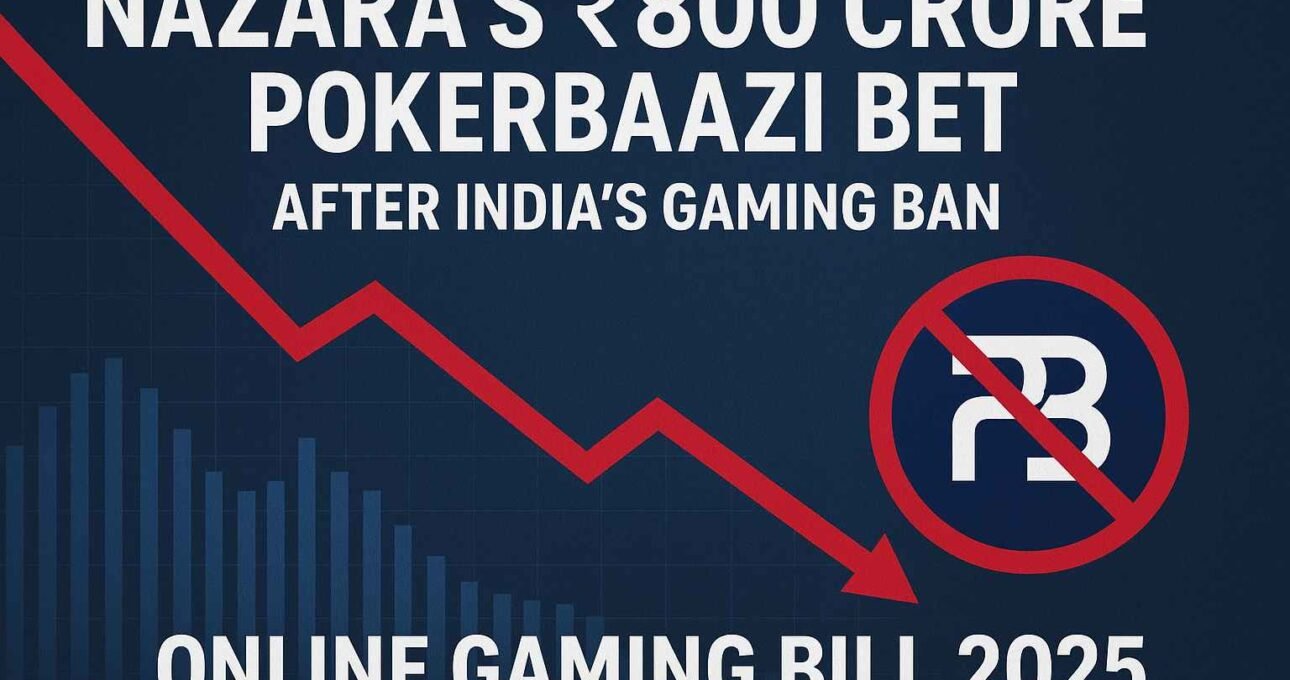India’s new Online Gaming Bill 2025 has shaken the foundations of the gaming and investor community, and one of the biggest names caught in the storm is Nazara Technologies. The company, often celebrated as a pioneer in India’s gaming ecosystem, now finds itself defending its balance sheet after the government’s sweeping ban on real-money gaming.
Nazara’s stock price fell sharply—down nearly 23% in just two days—as panic spread across Dalal Street. The crash was directly tied to its stake in PokerBaazi, one of India’s largest real-money gaming platforms, now facing an uncertain future under the new law.
The ₹800 Crore Gamble
Nazara has admitted that its ₹800 crore investment in PokerBaazi could be written off depending on how the ban is enforced. This has spooked investors, who fear the company’s exposure to real-money gaming is larger than it lets on.
However, Nazara insists that the panic is overblown. In its official statement, the company clarified that it earns no revenue from real-money gaming and holds only a minority stake in PokerBaazi. According to Nazara, its core businesses—like e-sports, gamified learning, and casual mobile gaming—remain untouched by the ban.
Investor Worries and Market Reality
Even with these assurances, investors remain jittery. A 23% stock slump is no small dip—it reflects deep concern about regulatory uncertainty, potential losses, and the broader chill this law has sent through India’s gaming startup ecosystem.
Other gaming-linked companies like Delta Corp also saw declines, though Nazara’s fall was steeper, thanks to the spotlight on its PokerBaazi exposure. For retail investors, this raises the uncomfortable question: is Nazara still a safe bet, or has it become collateral damage in India’s gaming crackdown?
What It Means Going Forward
The ban on real-money gaming doesn’t just hit platforms like PokerBaazi, Dream11, or MPL—it ripples through the entire gaming value chain, from ad spending to sponsorships and investment flows. For Nazara, the immediate challenge is protecting shareholder trust while navigating an evolving regulatory environment.
If the ₹800 crore stake is written off, it will hurt. But if Nazara can pivot its narrative back to e-sports and casual gaming—segments supported by the government—the company may weather this storm better than expected.
For now, the company stands at a crossroads, balancing between investor fear and its own assurances. As India redefines online gaming, Nazara’s next move will decide whether it remains a market leader or a cautionary tale.
